What to Expect at a Hearing Test

What to Expect at a Hearing Test
Hearing tests are an essential tool for measuring the health of your ears and determining if any hearing loss has occurred. Whether you've noticed a decrease in the clarity of your hearing or you just want to check in on the status of your auditory system, a hearing test can give you invaluable insight into the state of your ears. It is the first step in understanding what type of hearing loss you may have and what treatment options are available for you. If you're getting ready for a hearing test, it's beneficial to understand the various stages and know what to expect when it comes to the process.
Typically, you will be directed to put on a pair of headphones and settle into a soundproofed chamber or booth. Then the audiologist will begin to deliver a range of sounds and frequencies through the headphones and document your response. You will be required to either raise your hand or press a button whenever you believe you hear something. Furthermore, the audiologist may inquire about any specific attributes of the noises you hear, such as the strength or pitch of the sound. Most of the time, the entire process will take between 30 minutes to an hour and will be different for each person as everyone's testing requirements are unique. Despite the fact that you may not necessarily be engaged in all of the steps, comprehensive hearing tests commonly involve the following stages:
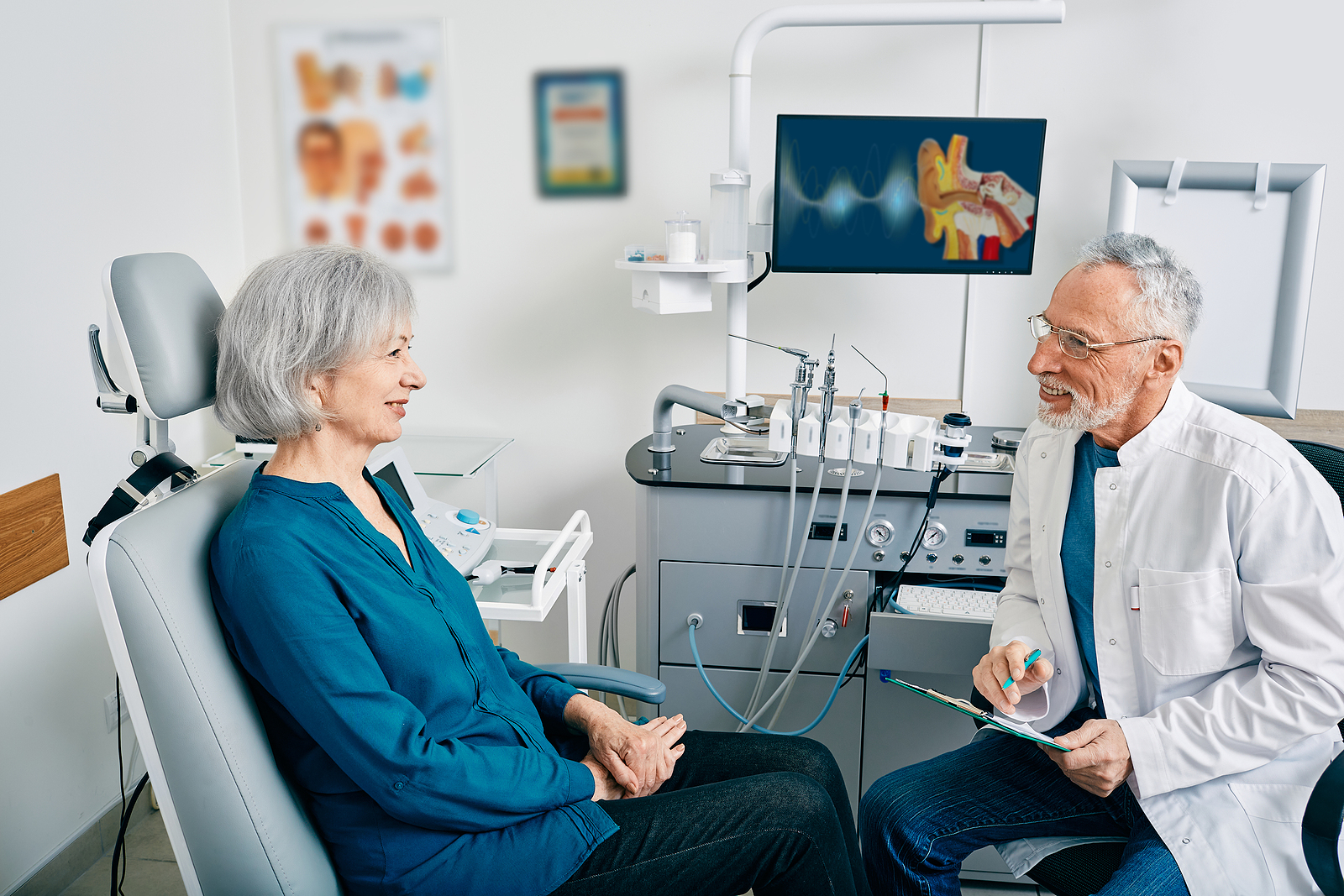
Health History
The first stage of a hearing examination involves answering questions about your current and past medical conditions and medications, family history of hearing problems, extent of noise exposure, and hearing issues you are experiencing. This allows the audiologist to get a general sense of your hearing health to anticipate and gauge your upcoming test results and treatments.
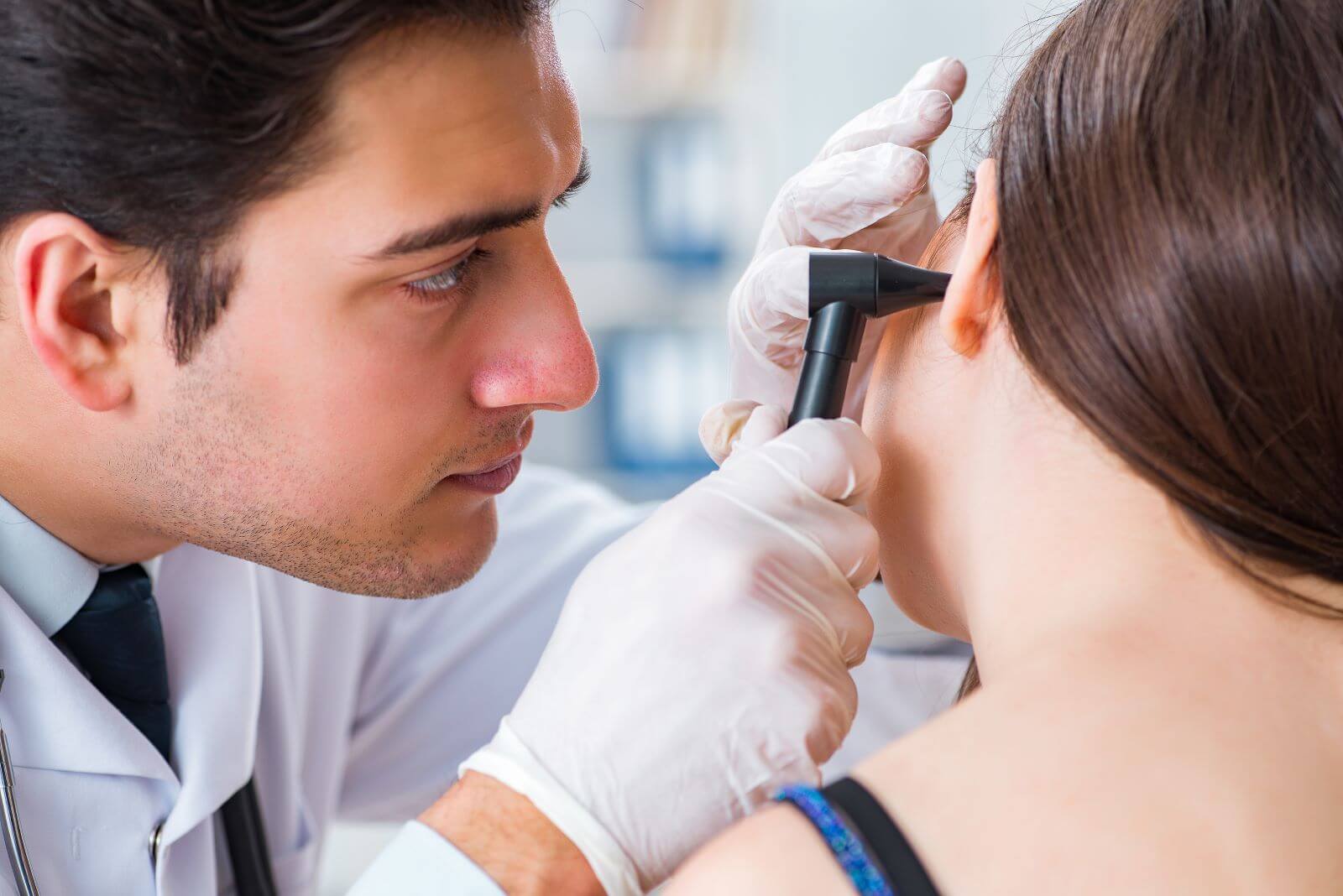
Otoscopy
During an otoscopy, the audiologist will use an otoscope, which is an instrument that casts a beam of light from its tip, to examine the inner ear for any physical obstructions like ear wax or foreign objects. They will also check for any irregular tissue growth in the ear canal and inspect the eardrum for scarring or perforation.
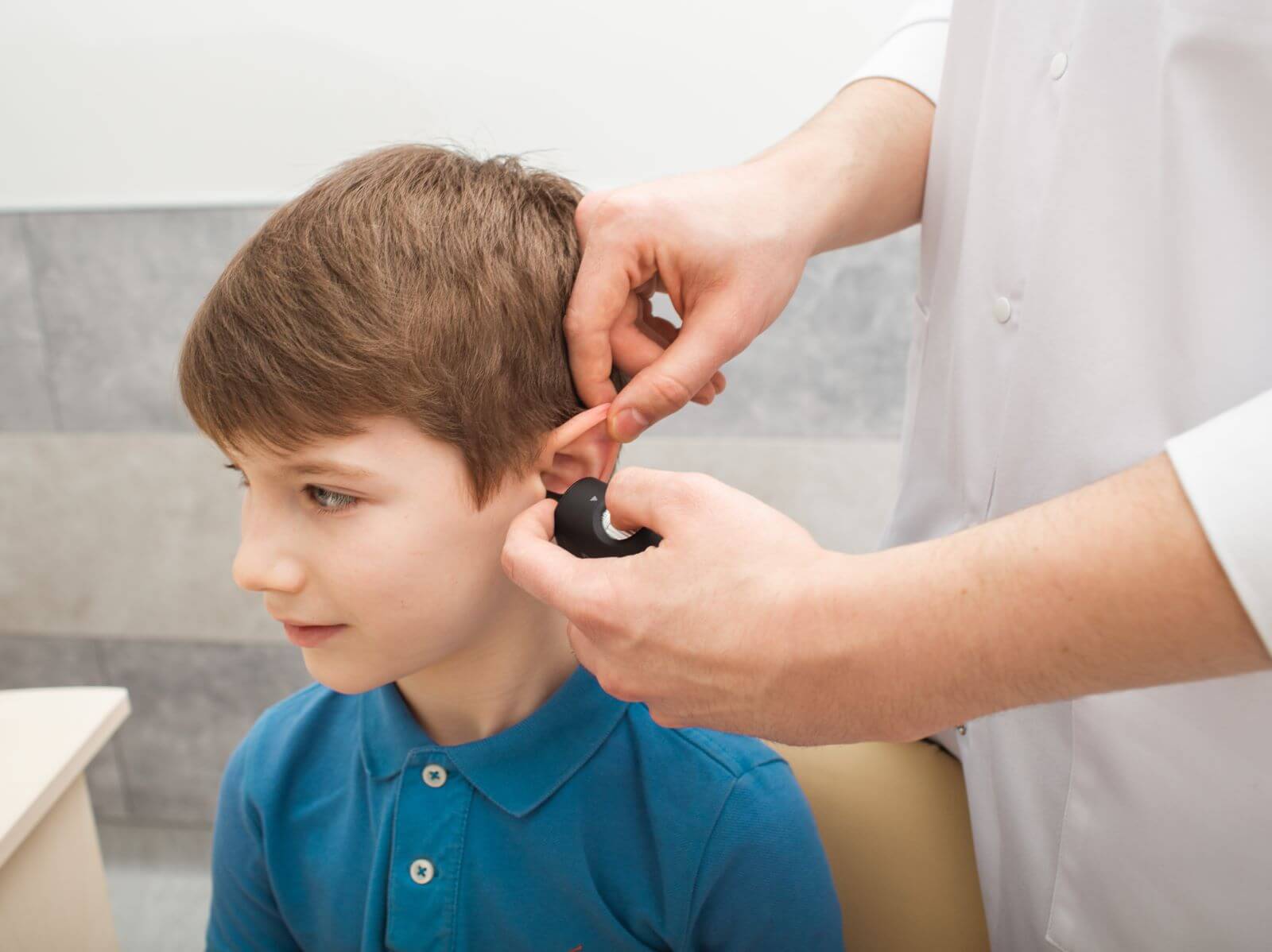
Tympanometry
During tympanometry, the audiologist will use a tympanometer probe to measure the flexibility of your eardrums by manipulating the pressure inside the ear canal while recording its reaction to a pure-tone sound stimulus. The data is used to draw up a tympanogram, which is basically a line graph indicating the eardrum's activity at different pressure levels.
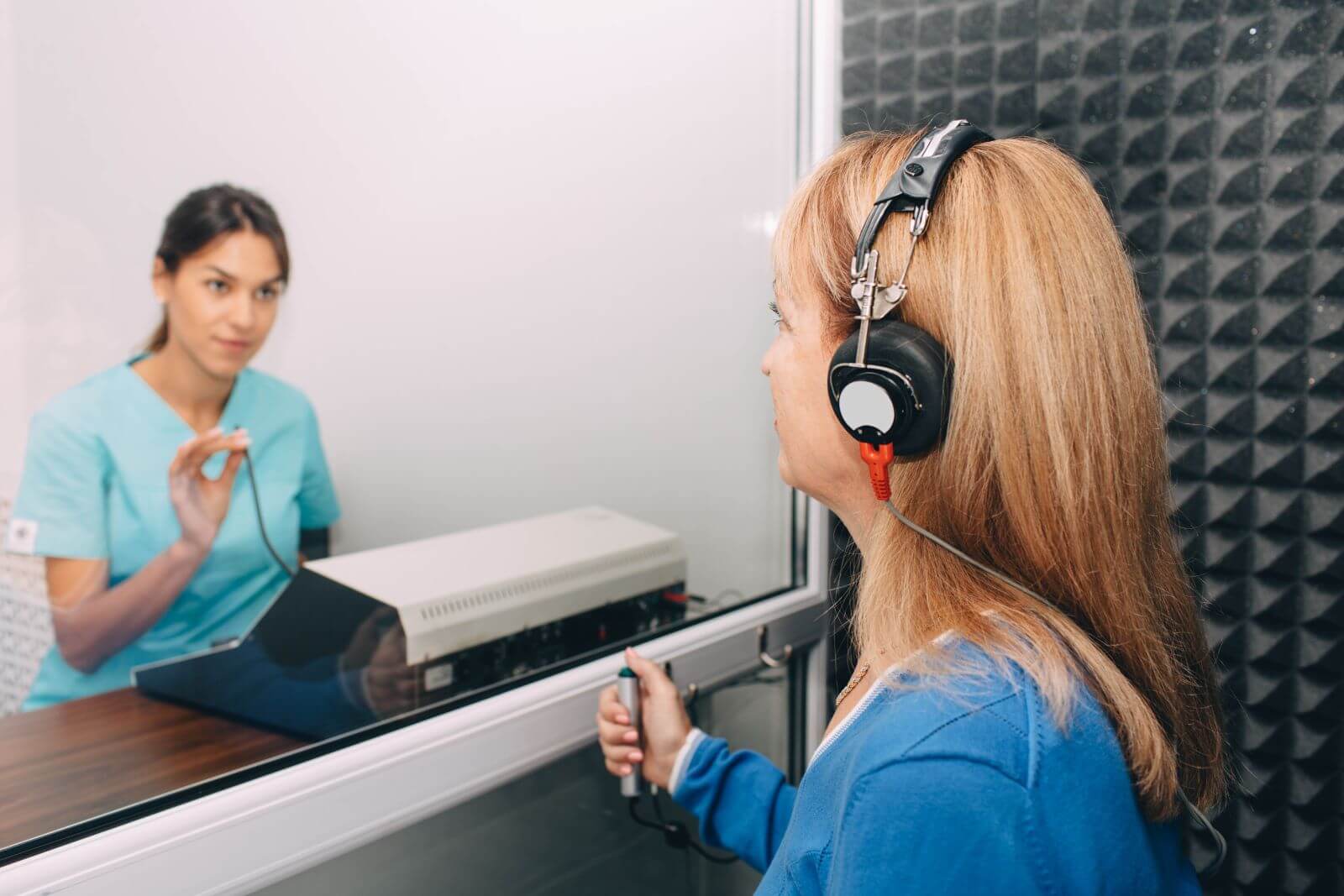
Speech Testing
Speech testing is conducted in a soundproof room, where you must wear headphones. During the speech reception threshold (SRT) exam, the volume of words played through your headphones is reduced until you can only repeat half the words you hear correctly. The word recognition test (WRT) measures your ability to recognize words at standardized sound levels. The results of speech testing are used as an indicator of your probability of improvement with various types of treatments.
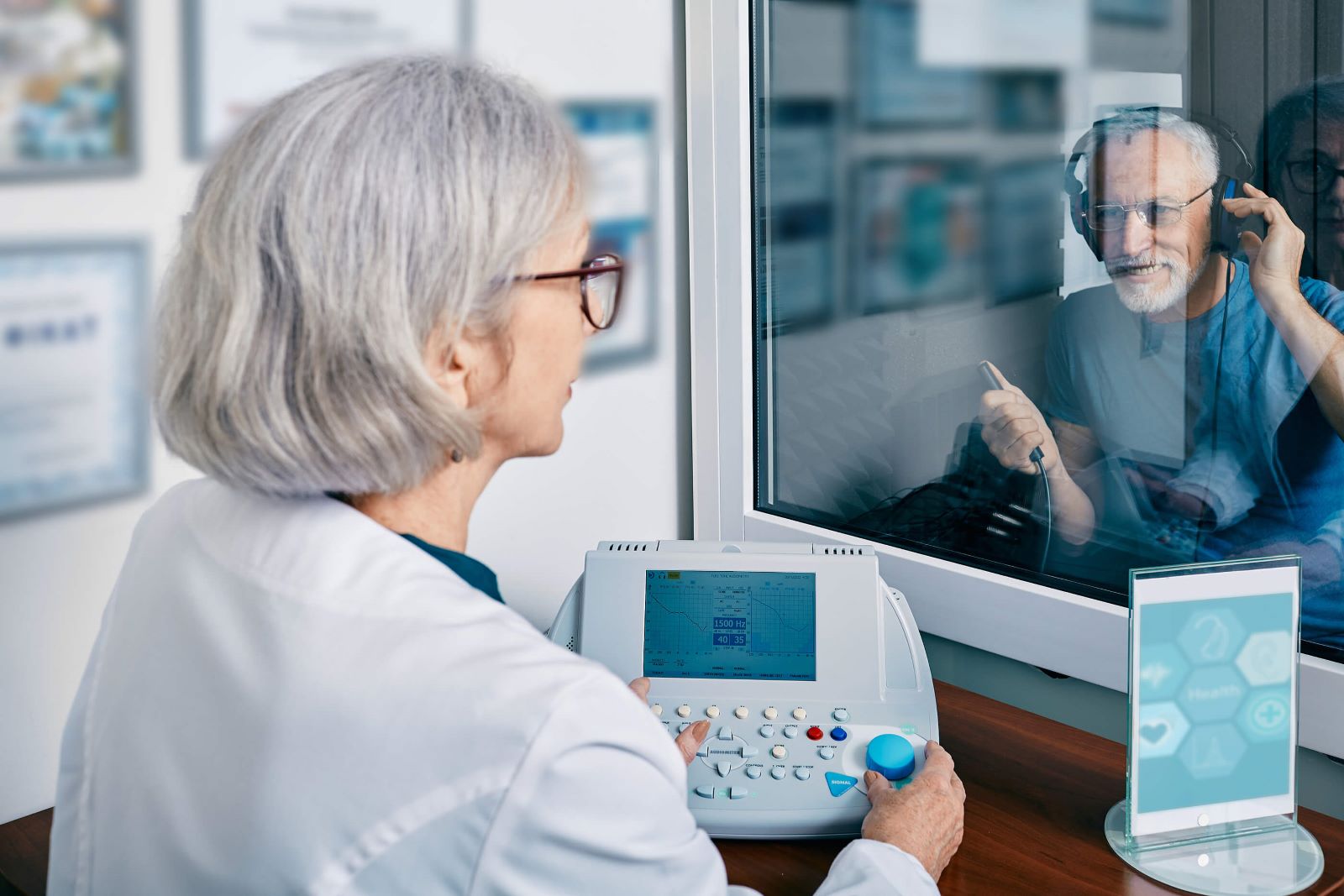
Air and Bone Conduction Testing
Also taking place in a soundproof room, air and bone conduction tests are used to gain a comprehensive understanding of the source of hearing impairment. The air conduction test entails raising your hand or pressing a button to indicate your perception of various tones and frequencies played through the headphones. The bone conduction test involves vibrations produced and transmitted directly to the auditory nerve by a special headband. The aggregate data from both exams help the audiologist determine whether your hearing loss is caused by underlying physical factors or damage to the aural nerve complex.
Completing a hearing evaluation is straightforward and stress-free, taking at most an hour of your time. If you have any concerns or are experiencing any symptoms of hearing impairment, it is vital to schedule a hearing test as soon as possible. Keeping track of your hearing health regularly makes it possible for you to accurately identify and resolve any possible auditory complications. Early detection and prompt treatment are critical for minimizing the long-term effects of hearing loss. Contact us today to schedule a hearing test!
Recent Posts
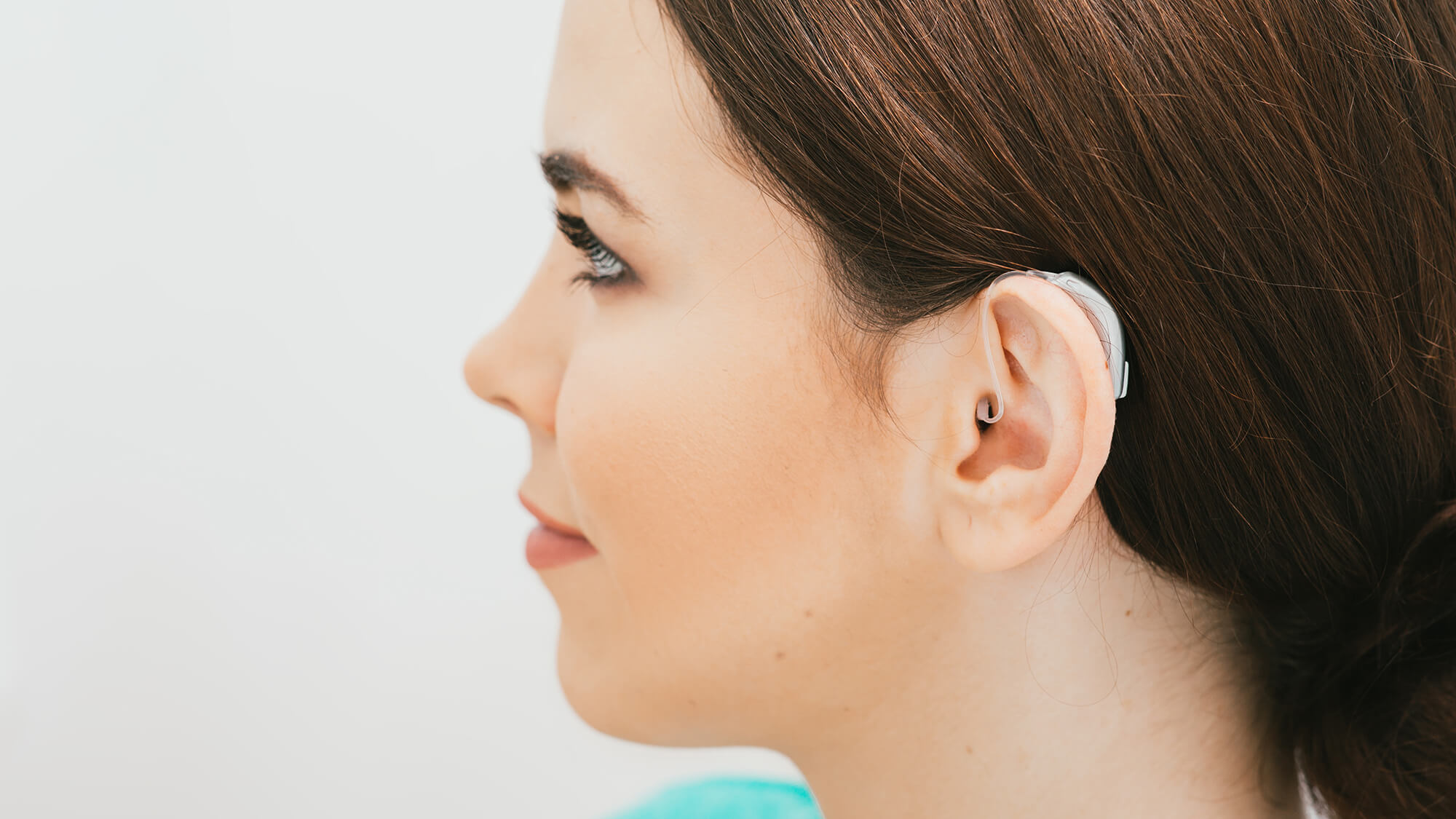
They’re coming: The Future of Over the Counter Hearing Aids
Quick Read We don’t yet know what the FDA standards for over the counter hearing aids will be, but you…
mjaudseo

How to Protect Against Hearing Loss
Quick Read Your lifestyle choices are one of the most significant factors in whether, and to what extent, you will…
mjaudseo
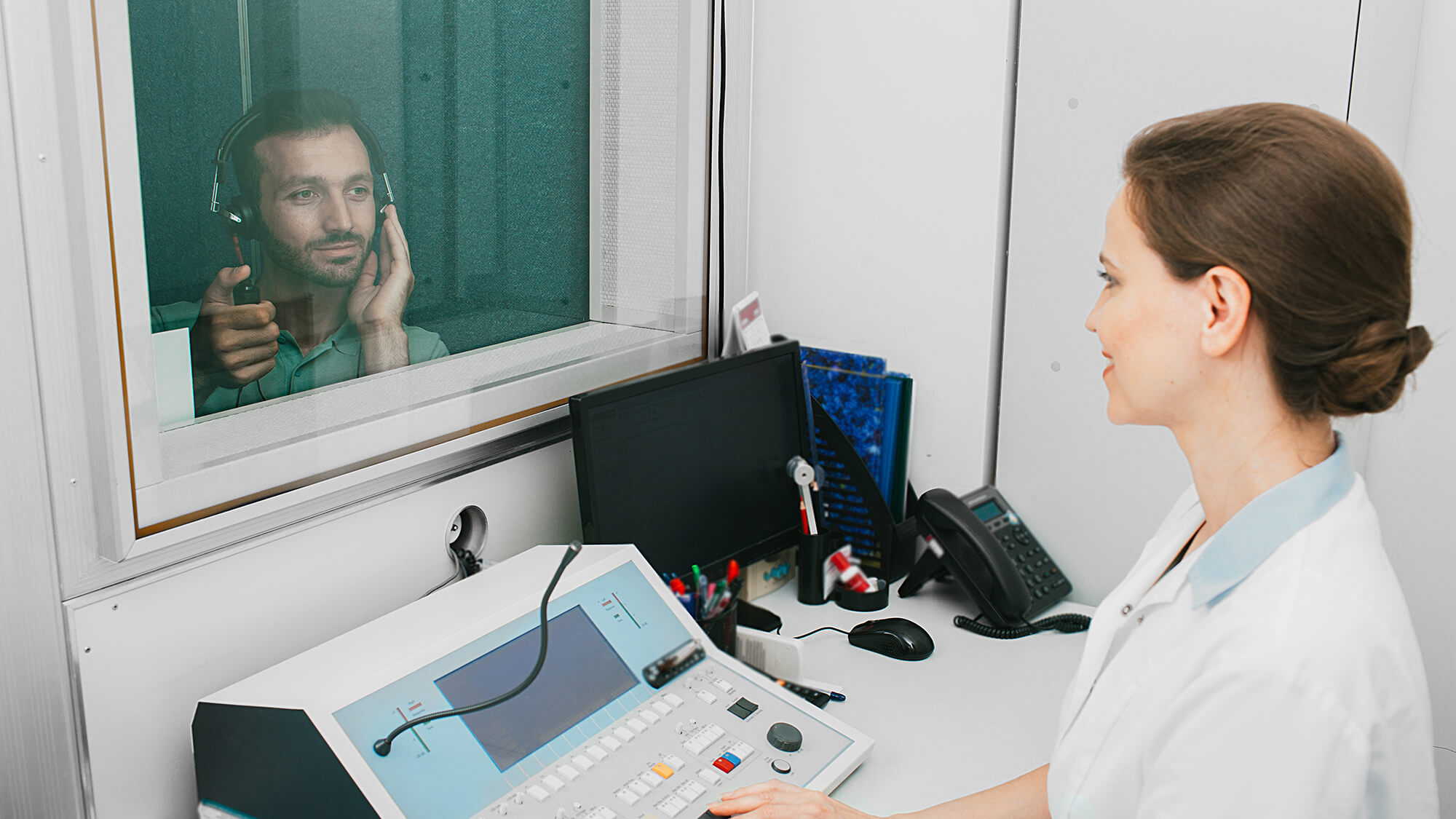
Looking for the Top 5 Hearing Aids? Look for Audiologist Reviews Instead
Quick Read Individual experiences with any specific hearing aid will largely depend on how well they have been customized and…
